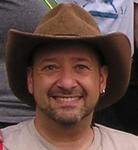 |
One of the World's Biggest Gay Clubs Has Been Accused of Transphobia
[url=https://www.vice.com/en/contributor/genevieve-glatsky][/url]By Genevieve Glatsky - 06/22/2021
The staff of the iconic club in Bogota has been the target of allegations that its staff is elitist, racist, and transphobic in choosing whom to allow in.
BOGOTA, Colombia””On a recent Friday night, people adorned with neon wigs and elaborate makeup packed a closed street in Bogotá's gay neighborhood Chapinero. Wearing cocktail dresses, lingerie and wedding gowns, they embraced and posed for photos. Every possible presentation of gender was on display as contestants strutted down an improvised catwalk to a cheering crowd, showing off their most intricate and raunchiest moves.Â
They had gathered for a ball, but also for a protest.Â
Earlier that week, Theatron, one of the largest gay clubs in Latin America, had announced it would be hosting a dance and fashion competition known as a ball with the House of Cobras, one of the “houses” in Colombia’s emergent ballroom scene.Â
José Toledo, known as Madre José Cobras, had planned the event with Theatron, the city’s iconic three-story gay club, for gay pride month.
Â
But the day after the event was announced Toledo began receiving backlash from her community. Theatron, many say, has a history of discrimination.Â
Since it was founded 19 years ago, Theatron has become more than a gay club. It's a staple of Bogota nightlife where a $16 fee covers unlimited drinks and access to 16 dance floors””each with a different style of music. But it has also been the target of allegations that its security staff is elitist, racist, and transphobic in choosing whom to allow in.
“These establishments are LGB, which is fine, but they won't include the T," said SofÃa Gallego, a 23-year old communications student, trans activist, and webcam model who was at the street catwalk on June 4.Â
https://www.vice.com/en/article/7kv4ky/o...ransphobia
|

![[Image: gods_own_country_poster_285.jpg]](https://www.bytowne.ca/files/bytowne/imagecache/vertical-poster/gods_own_country_poster_285.jpg)

![[Image: 51K%2BN5x2uQL._AC_.jpg]](https://images-na.ssl-images-amazon.com/images/I/51K%2BN5x2uQL._AC_.jpg)
![[Image: xl_942384_a6a20124.jpg]](https://xl.movieposterdb.com/12_11/2007/942384/xl_942384_a6a20124.jpg)
![[Image: Poster.jpg]](https://photos1.blogger.com/blogger/1143/2626/1600/Poster.jpg)
![[Image: 51263346357_c95be69448.jpg]](https://live.staticflickr.com/65535/51263346357_c95be69448.jpg)

